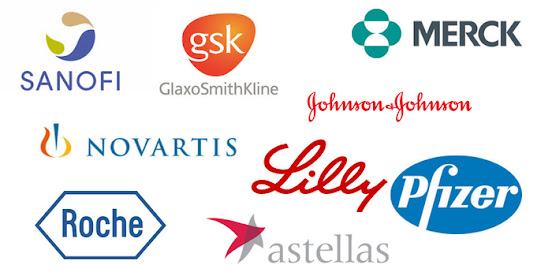Osteoporosis Drugs Market Analysis: Growth Trends, Segmentation, and Future Outlook
Osteoporosis, a condition characterized by weakened and brittle bones, affects millions worldwide. Osteoporosis drugs, playing a crucial role in managing this condition, contribute significantly to bone health and fracture prevention. This blog explores the current state of the osteoporosis drugs market, analyzing its size, segmentation, key players, trends, challenges, and future outlook.
A Growing Market Driven by Aging Populations
 |
| Osteoporosis Drugs Market |
The osteoporosis drugs market
is experiencing steady growth. According to a report by Ken Research,
the global market size reached a substantial $14,576.3 million in 2021 and
is projected to reach a significant $2294 million by 2030, boasting a
healthy CAGR (Compound Annual Growth Rate) of 5.2%. This growth
is primarily driven by:
- Rising Prevalence of Osteoporosis: An
aging global population is a key factor. As we age, bone density naturally
declines, increasing the risk of osteoporosis.
- Growing Awareness: Increased public
awareness campaigns and educational initiatives are leading to earlier
diagnosis and treatment of osteoporosis.
- Focus on Preventative Healthcare: Individuals
are becoming more proactive about managing their bone health, leading to a
greater demand for osteoporosis drugs.
Market Segmentation: Tailored Treatments for Diverse Needs
The osteoporosis drugs market
is segmented based on various factors, allowing for a targeted approach to
treatment:
- By Drug Class:
- Bisphosphonates: This class of drugs
forms the backbone of osteoporosis treatment, inhibiting bone breakdown
and promoting bone density.
- Selective Estrogen Receptor Modulators (SERMs): These
drugs are particularly beneficial for women experiencing bone loss after
menopause.
- Parathyroid Hormone (PTH) Therapy: This
emerging class of drugs stimulates bone formation and is used for severe
osteoporosis cases.
- RANK Ligand Inhibitors: These newer
drugs target specific pathways involved in bone resorption, offering a
promising treatment option.
- By Application:
- Primary Osteoporosis: This refers to
bone loss due to natural aging processes or hormonal changes.
- Secondary Osteoporosis: This type of
osteoporosis can occur due to underlying medical conditions or medication
use.
- By Distribution Channel:
- Hospital Pharmacies: Hospitals play a
crucial role in dispensing osteoporosis drugs, particularly for
injectable medications or those requiring close monitoring.
- Retail Pharmacies: These pharmacies
offer greater accessibility for patients to obtain their prescribed
osteoporosis drugs.
- Online Pharmacies: The growing
popularity of online pharmacies provides an additional channel for
convenient access to osteoporosis medications.
Market Analysis: Trends Shaping the Future of Treatment
Several trends are shaping the
future of the osteoporosis drugs market:
- Focus on Novel Therapies: Research and
development efforts are focused on developing new drugs with improved
efficacy, fewer side effects, and longer-lasting bone protection.
- Personalized Medicine: The rise of
personalized medicine may lead to individualized treatment plans
considering factors like a patient's genetics and risk profile.
- Telemedicine and Remote Monitoring: The
integration of telemedicine and remote monitoring tools can enhance
patient care and medication adherence.
The Competitive Landscape: Industry Competitors and Top Players
- Novartis AG
- F. Hoffmann-La Roche Ltd
- Merck & Co., Inc.
- Eli Lilly and Company
- Amgen Inc.
These companies leverage their extensive research and development capabilities, robust manufacturing infrastructure, and global reach to maintain a competitive edge.
Unveiling Opportunities: A Look Ahead
The osteoporosis drugs industry
presents a multitude of promising opportunities:
- Focus on Patient Adherence: Developing
long-acting medications or innovative delivery systems can improve patient
adherence to treatment plans.
- Personalized Medicine: Tailoring
treatment options based on individual patient characteristics and genetic
profiles holds significant potential.
- Expansion into Emerging Markets: The
growing healthcare infrastructure and rising disposable income in
developing countries create new market opportunities.
By capitalizing on these
opportunities, companies can carve out a strong niche within the dynamic
osteoporosis drugs market.
Future Outlook: A Competitive Landscape
The osteoporosis drugs market forecast for the next few years is promising. Growing awareness of
osteoporosis and the rising need for effective treatments are expected to drive
further market expansion. However, the industry also faces some challenges:
- High Cost of Treatment: Osteoporosis
drugs can be expensive, potentially limiting patient access. Exploring
cost-effective treatment options remains a concern.
- Medication Adherence: Long-term adherence
to osteoporosis medication is crucial for optimal bone health. Strategies
to improve patient compliance are necessary.
- Safety Concerns: Some osteoporosis drugs
carry potential side effects, necessitating careful monitoring and a
risk-benefit analysis for each patient.
Conclusion: Building Stronger Bones for a Brighter Future
The osteoporosis drugs market
plays a vital role in promoting bone health and preventing fractures in
individuals with osteoporosis. By focusing on innovative therapies, improving
access to treatment, and promoting patient adherence, the osteoporosis drugs
industry can contribute significantly to a future with stronger bones and
healthier lives.
You can also read about: Navigating Trends in the Osteoporosis Drugs Market




Comments
Post a Comment